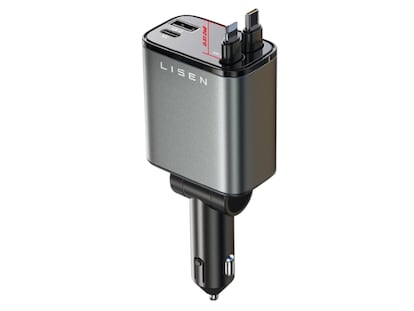Cable sobre el acercamiento de Brasil a EE UU despu¨¦s de la elecci¨®n de R¨ªo como sede de los Juegos Ol¨ªmpicos de 2016
El Gobierno brasile?o, destaca la Embajada estadounidense, se muestra mucho m¨¢s abierto a la cooperaci¨®n con Washington en materia de seguridad ante el reto de organizar los JJ OO
| ID: | 241650 |
| Date: | 2009-12-24 13:07:00 |
| Origin: | 09BRASILIA1439 |
| Source: | Embassy Brasilia |
| Classification: | CONFIDENTIAL |
| Dunno: | 09BRASILIA278 09BRASILIA347 09LONDON2012 |
| Destination: | VZCZCXYZ0000 RR RUEHWEB DE RUEHBR #1439/01 3581308 ZNY CCCCC ZZH R 241307Z DEC 09 FM AMEMBASSY BRASILIA TO RUEHC/SECSTATE WASHDC 0212 INFO RUEHBR/AMEMBASSY BRASILIA |
C O N F I D E N T I A L BRASILIA 001439 SIPDIS E.O. 12958: DECL: 2019/12/24 TAGS: PREL, BR, KOLY, ASEC, PGOV SUBJECT: 2016 Rio Olympics - The Future is Now REF: BRASILIA 347; BRASILIA 278 CLASSIFIED BY: Lisa Kubiske, Charge d'Affaires a.i.; REASON: 1.4(D) 1. (C) SUMMARY. Brazilians greeted the October 1 announcement that the 2016 Summer Olympics were awarded to Rio de Janeiro with an outpouring of national pride, a party on Copacabana beach and a sense of relief that the country is gaining some long overdue recognition as a regional and international leader. Politically, the GOB is looking to capitalize on hosting the games to solidify Brazil's image as the leader of South America and as an emerging global player. Internally, the IOC decision is being portrayed as a validation of President Lula's administration. The GOB understands that it faces critical challenges in preparing for the 2016 Games and has shown greater openness in such areas as information sharing to cooperation with the USG as a result - even going so far as to admit there could be a possibility of terrorist threats. The Lula government has taken care to associate Lula's chosen candidate to succeed him in 2011, Dilma Rousseff, with the IOC decision and expects the euphoria engendered by Rio's selection to translate into higher poll numbers for Rouseff. There remain, however, significant problems, that could impact the success of the Games , especially in terms of addressing security concerns. The Brazilian leadership remains highly sensitive to perceptions of USG interference and has not begun preparations for international coordination. In addition to preparing for the commercial opportunities the games will afford U.S. businesses, the USG should look to leverage Brazilian interest in an Olympic success to progress in bilateral cooperation in such areas as security and information exchanges. END SUMMARY. 2. (SBU) Amid the celebrations of the October 1 selection of Rio de Janeiro to host the 2016 Olympics there runs a strong current of relief among Brazilian leaders. President Lula described the feeling as "the end of the street dog complex," the idea that Brazil somehow does not deserve the status of an important country. Ministry of External Relations (MRE) Coordinator for Sporting Cooperation Vera Alvarez noted that being the first South American country chosen to host the Games was seen as evidence that the world (or at least the IOC) recognized Brazilian primacy on the continent and regional leadership. Alvarez also echoed a view expressed commonly in the Brazilian press: Rio's competitors had been Chicago (the United States), Madrid (the EU) and Tokyo (the Pacific Rim), and its victory must therefore reflect Brazil's perceived comparative success in dealing with the global financial crisis. "The IOC appreciated that we were the first to emerge from the crisis," she said. 3. (SBU) Asked what Brazil's goals for hosting the Games were, Alvarez repeated President Lula's assertion that these would be the "games of South America" and said that the GOB was planning to open its borders to its neighbors to encourage attendance by sports fans from all over the continent. Presidential Chief of Staff and likely presidential candidate Dilma Rousseff said the Games will provide opportunities for a younger generation of Brazilians and said the government would make numbers of tickets available to the youth of South America. Alvarez likened the effect of hosting the Games on Rio to that of the arrival of the Portuguese court in 1808, when Rio went from coastal town to the capital of an empire. She then went on to promise that the 2016 games would be the "greenest" Olympics yet and would improve Brazil's international image with their success. 4. (C) Though Brazil has some experience with major events such as the Pan Am Games, the Olympics will be an unprecedented challenge. The great question mark concerning Rio's selection has been the security situation, a question brought to the fore on October 17 as a gunfight between drug gangs resulted in the shooting down of a police helicopter (Ref c). MRE contacts have been defensive on security issues, telling Mission Brazil members (often without being asked) that the IOC clearly did not consider Rio's security situation inadequate. Apart from the standard MRE response, however, GOB officials have shown an understanding that security will be a serious concern for the Games. MRE political military advisor Marcos Pinta Gama suggested that the pending General Security of Military Information Agreement (GSOMIA) could be followed by another arrangement to share security information for the Olympics. Alvarez went so far as to admit that terrorists could target Brazil because of the Olympics, a highly unusual statement from a government that officially believes terrorism in Brazil does not exist. The SENASP (the National Secretariat for Public Security, Ministry of Justice) has been put in charge of security for the Olympics and will be coordinating the GOB's overall on-the-ground security efforts. Rio authorities, meanwhile, expressed confidence in the impact the Favela Pacification Plan (Ref d) will have on the city's overall security. The Plan - which involves evicting drug traffickers, establishing a sustained police presence, and providing basic services to favela residents - envisions the "pacification" of over 100 favela communities by 2016 (Ref e). Internal Politics 5. (SBU) Even before the selection of Rio, the Lula government was hard at work to turn the decision to political advantage. Lula's chosen candidate to succeed him, Chief of Staff Dilma Rousseff, was at his side in Copenhagen for the selection, an appearance which Sport Minister Orlando Silva declared "will help Dilma's candidacy." Lula's highly visible role in lobbying for the Games is portrayed domestically as international validation of his administration and recognition of Lula as a key world player. Indeed, the reality is that much of the actual planning and preparation for Rio's bid was done by the Rio state and municipal governments. However, Rio authorities counted on Lula coming in over the top and providing the international prestige needed to win. In a recent meeting, Rio governor Cabral explained to Consul General in colorful detail Lula's tireless lobbying efforts in Copenhagen. According to Silva "The opposition will just have to swallow Lula's leadership." By claiming credit for Rio's victory, Lula seeks to bolster his already high approval ratings and then use his popularity to build support for Dilma Rousseff in the October 2010 Presidential election. As a first step, the Administration has announced a special Olympic Program for Acceleration of Growth (PAC) under Rousseff's leadership. One of Lula's signature initiatives, the PAC is a plan to use government resources to leverage private sector investment in infrastructure ( ref a). While PAC implementation has been extremely slow, the program has a positive image among Brazilians, and by putting Rousseff in the lead, Lula helps build her up as the candidate to prepare Rio for the Games. Comment 6. (C) Being awarded the Olympics is seen as a major victory for Brazil in what Brazilians see as a struggle for the recognition they deserve. "We are finished being the country of the future and are the country of the present," Rousseff stated. The risk is that the GOB may choose to rest on its laurels and not get started on the work of planning the Games - Games that Lula has already dubbed a great success. Despite Rousseff's affirmation that "we have learned from the Pan Am Games," coordination for the 2014 World Cup, especially on security, lags. Attempts by Embassy personnel to establish contact with the Ministry of Sport have been refused. The GOB has articulated a vision for the Games - an Olympiad based on South American culture, openness to youth and environmentally friendly that played well in terms of domestic politics as well as appealing to the IOC. At this point, however, though state and municipal planning is moving ahead steadily, there has been little practical planning at the federal level for implementation of this grand vision. NOTE: Rio's challenges in building infrastructure and paying for the Games will be reported septel. For example, to make events more accessible to the South American public, Lula has said the GOB will distribute free tickets to the working classes and the youth of the continent. MRE admitted that there had been no thought given to how this would impact on ticket revenue projections or security, or to how the potential flow of youthful spectators across Brazil's borders would be managed. Rio also faces a host of challenges building infrastructure and paying for the Games. Lula has similarly decreed that Brazil will win more medals at the Rio Games than in the past, but there is no program in place to enhance the development of elite athletes. 7. (C) Brazil has shown it can host large-scale events such as the 2007 Pan Am Games, but the Olympics will present a different kind of challenge. While rejoicing in Rio's victory, the current GOB, with less than a year to go in office, seems to be taking a relaxed approach to preparation. The UK Embassy reports they have had less contact with the GOB on the Olympics than we have, even though they are eager to share lessons learned from initial planning for London 2012. While the very weak Ministry of Sport currently has the nominal lead on coordinating Olympic preparations, Mission anticipates the next Administration may organize preparations differently, perhaps through the Ministry of Planning or Casa Civil, or even establish a new agency specifically to coordinate Olympics infrastructure and security planning and logistics. Although the police and military have begun planning, the reality may well be that serious efforts await the next government, which will take office January 2011. 8. (C) Articulating the big picture goals and leaving details to the last minute may be a typically Brazilian approach, but could lead to problems. The delays we expect from the GOB in planning and executing the preparatory works for a successful World Cup and Olympic Games will almost certainly place greater onus on the USG to ensure that necessary standards are met. Mission Brazil has already begun coordinating among USG agencies in Brasilia and Rio de Janeiro, and has begun forward planning for the significant increases in personnel, facilities, and resources that managing U.S. involvement in the Games will require. Given the high degree of interest in the Olympics among Brazilians and the high value Brazil places on conducting a successful Games, there are already opportunities for the USG to pursue cooperation toward the Games, and to use such cooperation to further broader USG objectives in Brazil, including increased cooperation and Brazilian expertise on counterterrorism activities. As we look ahead, taking advantage of the Games to work security issues should be a priority, as should cooperation on cybercrime and broader information security (see ref B for additional areas for potential cooperation). We should also look to build in offers for dialogue on preparations for major sporting events as part of all high-level contacts with the Brazilians. KUBISKE |
Traducci¨®n autom¨¢tica. Puede que el texto traducido no sea fiel al original
Tu suscripci¨®n se est¨¢ usando en otro dispositivo
?Quieres a?adir otro usuario a tu suscripci¨®n?
Si contin¨²as leyendo en este dispositivo, no se podr¨¢ leer en el otro.
FlechaTu suscripci¨®n se est¨¢ usando en otro dispositivo y solo puedes acceder a EL PA?S desde un dispositivo a la vez.
Si quieres compartir tu cuenta, cambia tu suscripci¨®n a la modalidad Premium, as¨ª podr¨¢s a?adir otro usuario. Cada uno acceder¨¢ con su propia cuenta de email, lo que os permitir¨¢ personalizar vuestra experiencia en EL PA?S.
?Tienes una suscripci¨®n de empresa? Accede aqu¨ª para contratar m¨¢s cuentas.
En el caso de no saber qui¨¦n est¨¢ usando tu cuenta, te recomendamos cambiar tu contrase?a aqu¨ª.
Si decides continuar compartiendo tu cuenta, este mensaje se mostrar¨¢ en tu dispositivo y en el de la otra persona que est¨¢ usando tu cuenta de forma indefinida, afectando a tu experiencia de lectura. Puedes consultar aqu¨ª los t¨¦rminos y condiciones de la suscripci¨®n digital.




























































